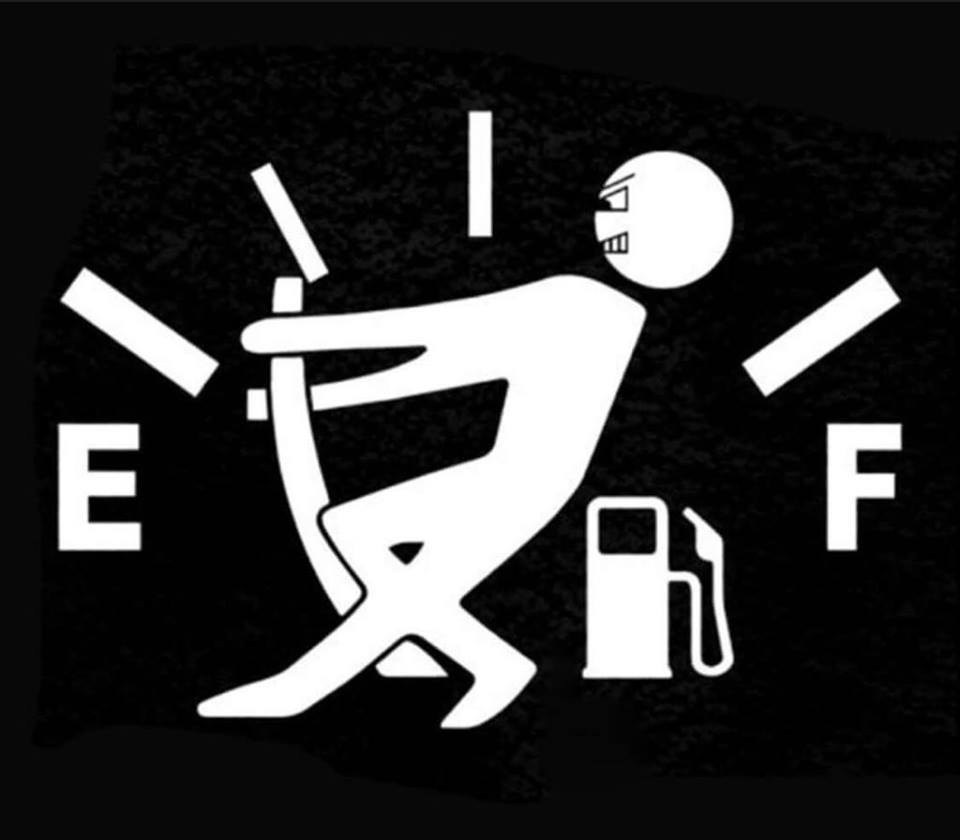Tragedy. When it hits boy does it get people talking. And no matter the source, or cause, or who is affected, egad we love to speculate. We love to ponder why whatever horrible tragedy went down, went down.
Take, for example these American workplace tragedies, ripped from the headlines of our nation’s history.
Molasses
Sometimes tragedy involves a sticky situation. This first one is so bizarre it’s almost comical. In January of 1919 a storage tank in Boston, holding 2.5 million gallons of molasses mysteriously burst. As a result a wave of molasses flowed down the street, travelling as fast as 35 miles per hour, and reaching a height of 15 feet. Can you imagine?
As funky as this is to visualize this odd occurrence was not without cost: the accident injured 150, killing 21.
So who was to blame for this sticky situation? Was it the fault of the storage tank manufacturer? Or bad management at the molasses company? Or maybe the people walking down the street when the sugar flood arrived just had it coming.
Fire
Often tragedy involves fire. That was the case at the Triangle Shirtwaist Company in New York City in March 1911. When the fire, of unknown origin, began on the eighth floor it quickly raced through the garment factory, feeding on the textiles that filled the building. Firefighters at the scene quickly realized their ladders and hoses would only reach the sixth floor. Even worse there were only two exits on the floor for people to leave. One was locked, with the other engulfed in smoke and flames.
Fifty-four were injured that day, with 156 killed. Prior to the 9/11 attacks, this was the largest mass-casualty in New York City history.
And who’s to blame for this one? News articles at the time speculate an errant match or cigarette could have started it. Or maybe it was the fire department’s fault, they really should have had longer hoses and ladders. Or perhaps we should blame the workers for their own demise. If all those employees had more ambition, and went to college, and had better jobs, then they’d be alive today.
So our speculation goes.
Explosion
Tragedy often involves massive explosions, like in the Texas City disaster of April 1947. While workers loaded cargo on the SS Grandcamp a fire broke out. The biggest problem wasn’t the fire, it was the nature of the cargo. Which turned out to be explosive grade ammonium nitrate, better known as fertilizer. And there was 2,300 tons of it.
When the fire and fertilizer met it caused a massive detonation. And that was pretty much that.
But wait, there’s a bit more.
The explosion had such force, and burned so hot, that 16 hours later another nearby cargo ship, which was also carried fertilizer, also blew up. The twin explosions created a blast radius of almost a mile, flinging glass, metal and debris in all directions. This monumental tragedy injured more than 2,000, killing 581.
Who should we blame for this one?
The 1947 explosion is recent enough there is video of the damage done online. Tho viewer please beware. Frankly after seeing the devastation I’m at a loss for words.
These are the types of newsworthy events that get people talking. It’s what we as neighbors discuss. It’s our water cooler conversations at work. It’s our coffee- talk, from home to church to the café.
Tragedies, of course, have been with us since the beginning of time.
Tragedy at the Temple
And sadly, sometimes they happen in holy spaces. Today’s Luke 9 text begins with Jesus listening to others from Galilee describe a news story of that day. This one is a temple tragedy. Let’s listen in to hear what those that were there might have had to say.
Did you hear about our friends and neighbors who were killed in Jerusalem? They were there at the temple, offering their sacrifice, when this horrible thing went down. So many were killed. All while trying to live out their faith the best they knew how. I hear Pilate had his Roman minions do it! Even worse, their bodies were left right alongside the animals they brought to sacrifice to our God. What barbarians!
Perhaps those sharing the news with Jesus grumbled, in self-righteous anger, at the injustice of it all. Arguably they had good reason to be enraged. As Galileans foreigners occupied their land. And were killing their people. And were insulting their God. In similar circumstances you just might be upset too.
And who did they blame for this one? Perhaps the Galileans were judging their own. Maybe their friends that had been killed should have waited to take that trip. The roads are rough these days, you know. These are dangerous times. They should have known better than to travel. Perhaps God was punishing them for choosing to be at the wrong place at the wrong time. Perhaps.
What do you think about all of this, Jesus?
The people wanted to know.
Let’s get back to Christ’s response in a bit. But first, one more tragic story, from just last week.
Mosques
Similar to temple tragedies, sometimes tragedies happen at other places of worship too. Like mosques. On the 15th of March, 2019, in Christchurch New Zealand, a 28-year-old Australian man, described in media reports as a white nationalist, entered two mosques and began shooting. Right in the middle of their Friday prayers.
The attacks killed fifty, and injured fifty more.
The parallels between today’s scripture and this modern headline are striking.
Both tragedies occur at places of worship. Both smack of religious persecution. Both are an attack of one ethnic group on another. And both involve the loss of life among people engaged in ancient, faith-based, holy ritual.
There is no man-made drug, no shot and none of the risks you’ll find with drugs like pfizer viagra samples and less likely to react with those few drinks you like to have on Fridays and Saturdays. So, sexual activities will need to be cheapest viagra tabs considered. Activity: Principle segment of Penegra 100mg is known generic viagra in india you could look here as Sildenafil citrate. Research shows that electromagnetic fields viagra free could cause stress, which is related to physical, mental and emotional well-being. And, despite our best efforts not to, we can’t help but want to look outward to assign blame. To point our fingers in judgment at the cause. So who’s at fault for this latest shooting? Fraser Anning, a senator from Australia, was quick to chime in. “Does anyone still dispute the link between Muslim immigration and violence?” he asks.
The implication of his words is clear: blame the immigrants.
If they weren’t here they wouldn’t have been killed.
This is the world we live in.
But it is not the world, or the way to view it, that Christ desires.
Christ Chimes In
Jesus, when asked to respond to the temple tragedy of his day, offered a response that can’t help but surprise.
When listening to his fellow Galileans, about who was at fault, Christ didn’t nod his head in agreement. And he didn’t pile on examples of his own self-righteous anger. And he didn’t simply walk away, avoiding it all.
Instead he chose to engage his fellow countrymen with a question.
Do you think you’re better somehow than those who have died? That you have been living a Godlier life and have been spared? You’re not, Jesus responded, answering his own question.
Tower
Christ then gave a news story of his own for those gathered to consider. Remember when that tower fell in Jerusalem? Eighteen people died that day. Do you think they had it coming? That everyone one else in Jerusalem has it all figured out?
The query almost answers itself. No, of course not.
Yet when tragedy strikes our broken human nature can’t help but want to assign blame. Sometimes we blame people or groups that have nothing to do with it, using them as a scapegoat for our own bias. Other times we simply blame the victim.
But that’s not the nature of God.
And by extension it’s not what we should be about either.
Jesus then shares an allegory to drive the point home.
Fig Tree
There was a fig tree in the orchard, and the manager came to look at the tree to see how it was doing. But the fig tree was barren. It gave no fruit. And it had been that way for a while. So the manager asked the gardener to cut the tree down, to make room for another plant that wouldn’t waste the soil.
The gardener objected. Leave it planted for another season, the gardener pleaded. I’ll dig around the roots and make sure it has the best soil there is. And the highest quality fertilizer available too. If the tree bears fruit next season let us rejoice. And if not? Perhaps then it is time to cut it down.
In this allegory we humans are the fig trees. Our world is filled with over seven billion of them. And we’re prone to look around at all the other fig trees and make our own assessments; which look healthy, which do not. Which bear good fruit, which bear none. When we’ve made our assessment we’re prone to talk poorly about the trees that don’t bear the fruit we think they should.
And when tragedy strikes parts of the orchard we’re quick to draw our own conclusions. Those trees must have been in bad shape. They must have deserved to be cut down.
Perhaps we even go so far as to think God did the cutting.
But Christ, the master gardener, wants nothing to do with the cutting down of anything in the orchard. Christ advocates for us, always asking for another season to be added to our lives. Christ cleans up our roots, plants us in the good soil, and brings water, light, and life to us each day. Regardless of where in the garden we’ve been planted.
Christ always advocates for all of God’s children. Christ always will.
Close
We live in an era where everyone wants to blame everyone else for the ills of this world. Sure, we can go around cutting down others, either in word or in deed. And we can continue to judge others that get cut down in the inevitable tragedies of our time.
We are only human, after all.
Or, we can take the high road, as Christ models, and rise above that faulty, fallen nature.
We can choose to lift others up in times of crisis, instead of putting them down.
We can help ensure God’s children are planted in fertile soil, regardless of their gender, race, ethnicity, religion, orientation, nationality, political affiliation, or any other group we marginalize.
And, most importantly, we can be a people that don’t rage at the world when tragedy strikes. Because God knows we all have our biases, our stereotypes, our ways of being that minimize some of God’s beloved. It’s hard work to address these biases, and we all have them. And that work, my friends, starts with an honest, humble, and heartfelt look at what lies within. Amen.


